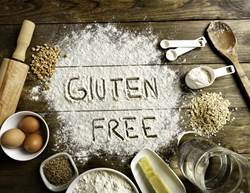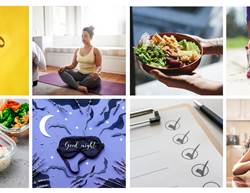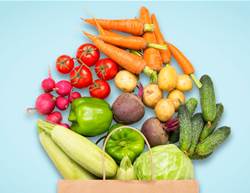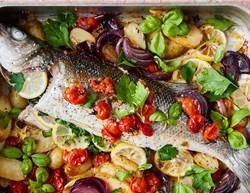How often do you read Prevention Australia's print magazine?
There is a lot of information floating around the health world about following a gluten-free diet but not all of it is backed by science. Here, dietitian Lyndi Cohen has busted some of the most common gluten-free myths and you'll never think the same again.
Gluten-free automatically means ‘healthy’
While the gluten-free diet has been a key health trend for many years, gluten-free food is not always healthier. Some gluten-free alternatives can contain added fat and sugar or contain less fibre than the original options. Don’t assume that a gluten-free product is automatically healthier for you. Instead of opting for processed alternatives, choosing naturally gluten-free options like rice, legumes, fruit and vegetables is an easy way to stick to healthier choices.
Gluten-free eating is boring and restrictive
A gluten-free diet can still contain a lot of variety and taste delicious. If gluten doesn’t agree with you, there are still so many nutritious, delicious and convenient options. You may even find that a gluten-free diet challenges you to be more adventurous and inventive with your diet. Challenge yourself to include new foods into your diet like red rice, quinoa, buckwheat and millet. SunRice Supergrains are a really convenient and healthy way to get a variety of gluten-free wholegrains into your diet - otherwise brown rice is a classic favourite and pantry must-have!
A little bit of gluten is OK
If you’re sensitive to gluten or have a gluten intolerance you may be able to tolerate a little bit of gluten. However, if you have coeliac disease, even trace amounts of gluten can be really harmful and cause intestinal damage. It’s recommended that people with coeliac disease use their own toaster, utensils, cutlery and crockery to avoid contamination.
A gluten-free diet is expensive
While gluten-free alternatives such as gluten-free bread tend to be more expensive than the original versions, eating gluten-free can be just as affordable. Choose affordable gluten-free options like rice, sweet potato, corn, lentils and chickpeas for a healthy diet that doesn’t break the bank.
There is no such thing as gluten-sensitivity
Non-Coeliac Gluten-sensitivity (NCGS) is recognised as a medical condition, however the cause and treatment options aren’t yet well understood. Removing wheat or gluten from your diet does not mean you have coeliac disease and it’s a good idea to speak to your doctor and an accredited practicing dietitian.
Wheat-free and gluten-free mean the same thing
Wheat and gluten are different things. While gluten is contained in wheat, not all products marked wheat-free are gluten-free. If you need to avoid gluten, always check the food label to be sure that your product is gluten free.
If you’re allergic to gluten, you’ll feel unwell
Only 20 percent of people in Australia with coeliac disease have been diagnosed. Many people with the autoimmune disease do not have symptoms. It’s important not to self-diagnose yourself if you think you have a gluten allergy or sensitivity. Speak to your doctor who can provide the best support.









